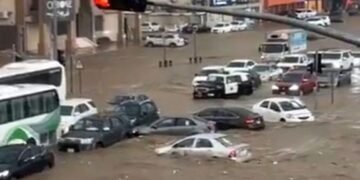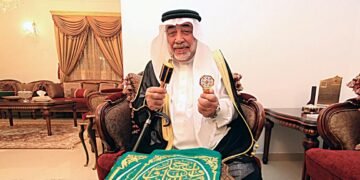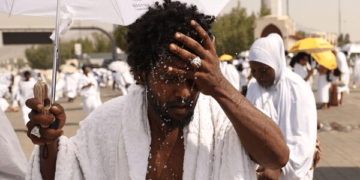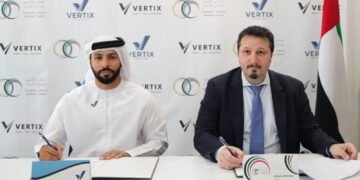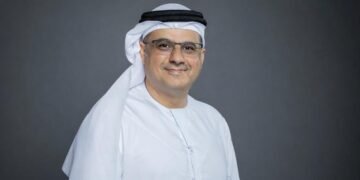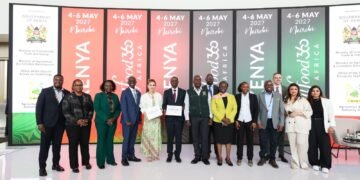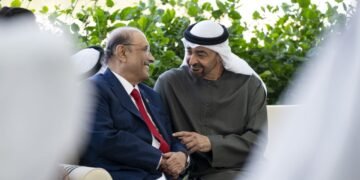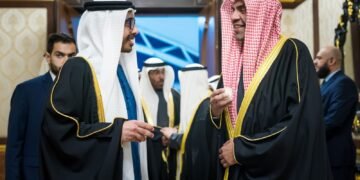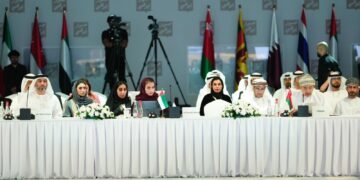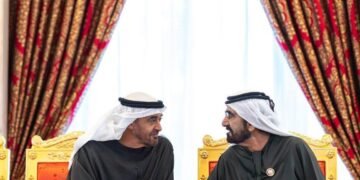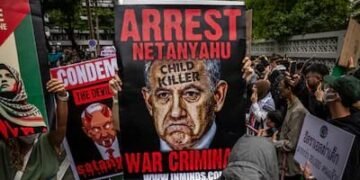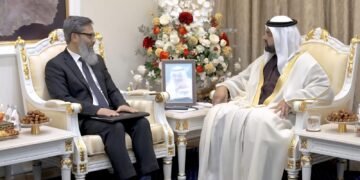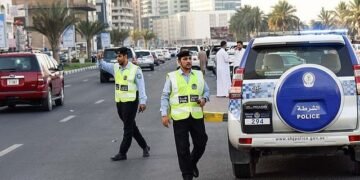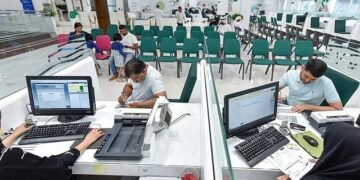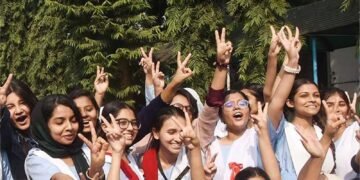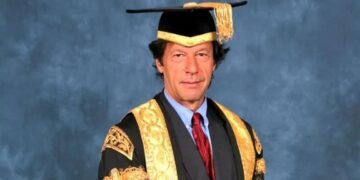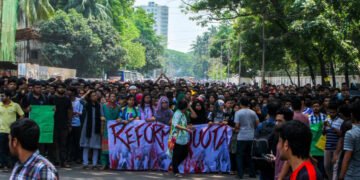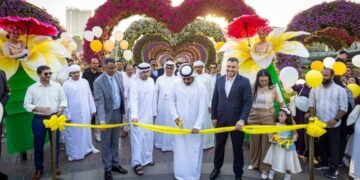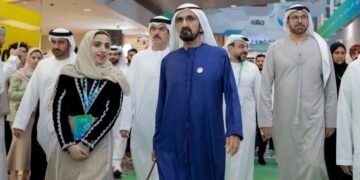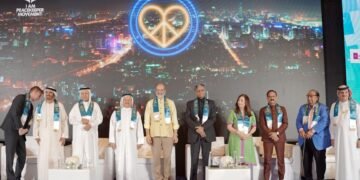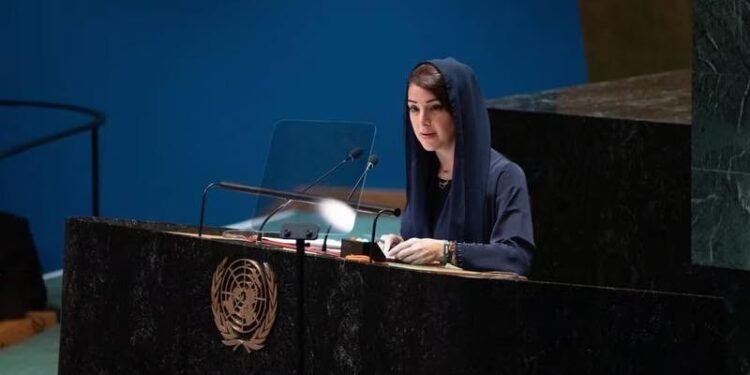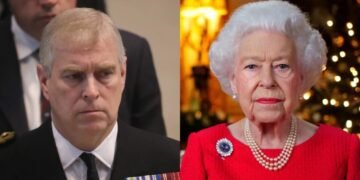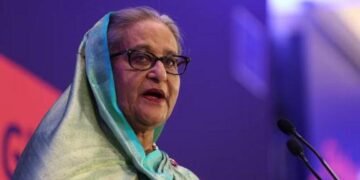Minister of State for International Co-operation says political and peaceful solutions are essential to resolving territorial and international disputes
Reem Al Hashimy, Minister of State for International Co-operation, has told the UN General Assembly the world has the tools needed to surmount the many challenges facing the planet today.
Ms Al Hashimy on Saturday said political solutions are essential to resolving territorial and international disputes.
She emphasized, however, that technological advancements meant the world could find solutions to complex challenges but collective action was needed urgently, state news agency Wam reported.
In a wide-ranging speech, Ms Al Hashimy also reflected on how climate change marked important juncture in the world’s history and said Cop28, the UN climate talks that take place in the UAE in about two months, would focus on the global energy transition, climate finance and protecting livelihoods.
She also pointed to the crucial importance of global water security and said a new UAE report on the issue highlighted how action was needed.
“The UAE declared this year the ‘Year of Sustainability’, under the theme “Today for Tomorrow” to honor our shared responsibility to present and future generations, who deserve to live in safe, and prosperous environments,” said Ms Al Hashimy.
“We also seek to honor and build upon the efforts of our founding fathers, who strived for the advancement of our nations. Our responsibility is to preserve our planet, our natural resources as well as our cultural heritage.”
Wam reported that Ms Al Hashimy stressed the importance of that approach in the midst of the existential challenges facing the world today, whether in terms of confronting armed conflicts, climate disasters and our shared human values, including the unrelenting waves of extremism, racism, and hate speech dominating the world.
“Fortunately, more than any other time in history, today we are capable of overcoming these challenges. We have reached the highest level of advancement: today we possess the technology required to find innovative solutions to complex challenges.”
Ms Al Hashimy pointed out the importance of maintaining an international order based on respect for the sovereignty, independence and territorial integrity of states urging peaceful resolutions to crisis. “Resorting to the use of force instead of relying on political solutions and dividing the world into an ‘us against them’ mentality is a zero-sum game. This will only lead to more chaos and wither our diplomatic tools. We underscore the importance of respecting diversity, political differences and development disparities,” she said.
“Our region is ravaged by armed conflicts and extremist ideologies. The UAE continues to exert efforts to reduce escalations and call for dialogue and diplomacy to resolve differences.
“We have been focusing on creating a new status quo to strengthen economic integration among the countries of our region. This would benefit the economies and people of the region and will enhance regional stability and prosperity.”
Ms Al Hashimy renewed the UAE’s demand that Iran end its occupation of the islands of Greater Tunb, Lesser Tunb, and Abu Musa. She said: “Our legitimate right to these islands has not diminished and time will not diminish nor extinguish our sovereignty over these islands. We will continue to seek a resolution, either through direct negotiation or through the International Court of Justice. This has been our firm stance for decades.”
Ms Al Hashimy also spoke about the climate, food, energy and water crises that are impacting many parts of the world and stressed that the climate change crisis is an important juncture in our history.
“To keep 1.5°C within reach, we need transformational change,” she said, referring to global efforts to try to keep the world heating by more than 1.5°C above pre-industrial levels as outlined the 2015 Paris agreement. “Some may see this as impossible… but the UAE disagrees.”
The 1.5°C target was agreed at Cop21 that took place in 2015 in Paris. And in about two months, the UAE hosts Cop28. The crucial UN climate talks run from November 30 to December 12 and Ms Al Hashimy spoke about UAE preparations to host the key summit.
“The action plan of the conference will focus on four main axes: accelerating an orderly and just transition in the energy sector, advancing climate financing mechanisms, and enhancing the livelihoods and protection of individuals according to a transparent and inclusive framework.”
On the issue of water scarcity, the UAE is expending great effort to find new models of international co-operation in the field of water and make this challenge a top priority for multilateral action. “The UAE seeks to find effective solutions by working with international partners to address this important issue. Today, the UAE’s Foreign Ministry has published a report, which we hope will contribute to achieving this goal.”
Ms Al Hashimy said collective action was an urgent need and the decisions the world takes today will have far-reaching impacts for decades to come.
“Peace is our choice, development is our path, and a stable future is our destination. We see the potential of future leaders in our youth. A leadership that will bolster our achievements and usher in a promising future.”
Finally, Ms Al Hashimy again expressed the UAE’s sincere condolences and sympathy to the governments and people of Morocco and Libya after the recent disasters that hit the two countries.
Meanwhile, Mariam Al Mheiri, Minister of Climate Change and the Environment, spoke on the sidelines of the 78th United Nations General Assembly (UNGA) in New York.
She explained the importance of the COP28 Food Systems and Agriculture Agenda, which focuses on four key domains of country-led action, non-state actor leadership and action, innovation scaling, and finance.
Endorsing the Mangrove Breakthrough initiative, Ms Al Mheiri said: “This collaborative effort between the Global Mangrove Alliance and the UN Climate Change High-level Champions has support from non-state actors and governments worldwide with one main goal: to restore and protect 15 million hectares of mangroves globally by 2030.
“It is exactly these types of ambitious, accountable, and collaborative nature-based projects that can help the global community get back on track for the Paris Agreement goals by 2050.”
Source: The National

